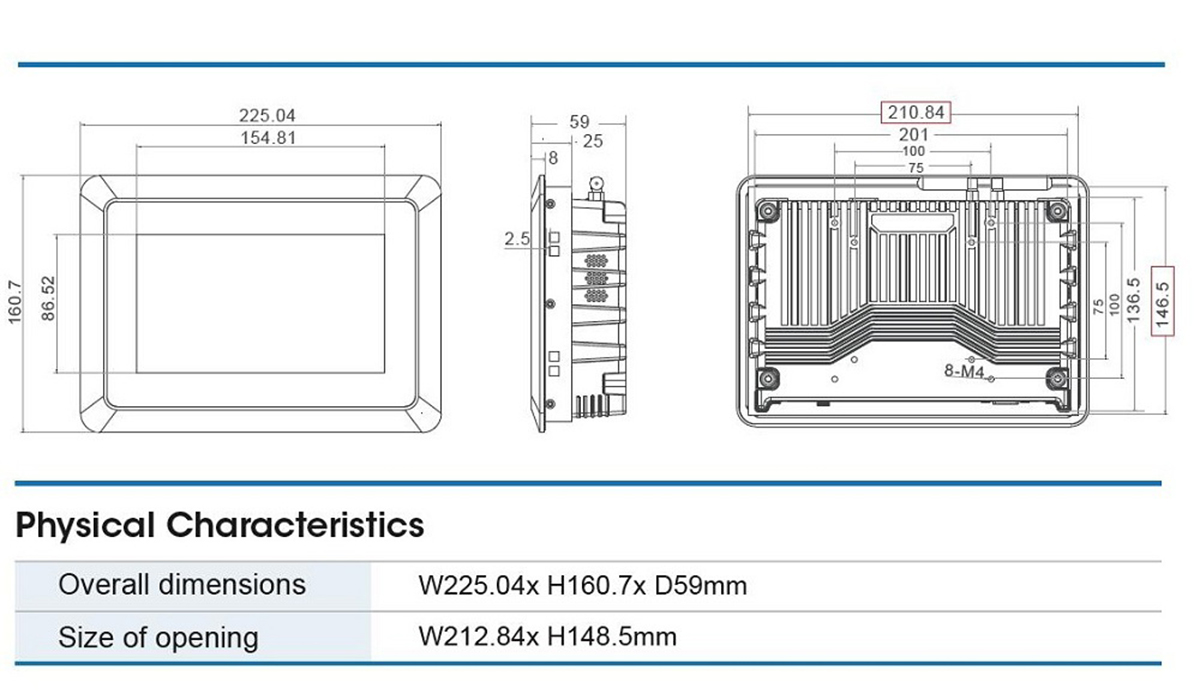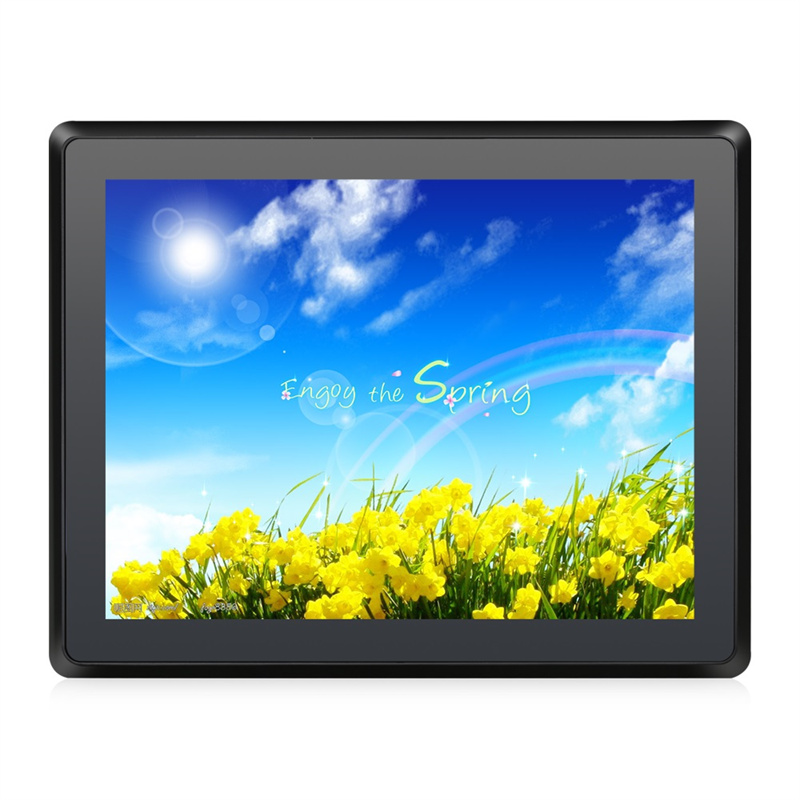Intel Corp’s exit of next-unit-of-computing (NUC) provides a boon for Asustek Computer Inc (華碩) to expand its mini-PC business at a faster pace than the segment’s average of 10 to 20 percent a year, as the world’s PC sales are dwindling during the post-COVID-19 pandemic era.
With the new NUC business unit, the PC vendor is seeking to gain a stronger foothold in the inconspicuous segment of industrial computers by integrating Intel’s popular NUCs with its existing mini-PC series. ipc industrial pc

Photo courtesy of Asustek Computer Inc
When it comes to PCs, most people think of consumer and commercial computers, while overlooking industrial or embedded computers, Jackie Hsu (許祐嘉), co-head of Asustek’s Open Platform Business Group and AIoT Business Group, said in an exclusive interview with the Taipei Times on Tuesday at Asustek’s headquarters in Taipei’s Beitou District (北投).
Industrial computers enjoyed a decent and stable growth rate of a double-digit percentage annually over the past few years in terms of unit shipments, outpacing traditional PCs, Hsu said.
Global PC shipments are expected to contract 13.7 percent to 252 million units this year as demand plummeted from the booms created by remote work and school demand due to the COVID-19 pandemic, according to IDC’s forecast.
Photo courtesy of Asustek Computer Inc
With wider coverage from industrial computers, commercial and gaming computers, mini-PCs registered robust growth of 10 to 15 percent a year over the past few years, Hsu said.
It would be a reasonable target for Asustek to outgrow the overall mini-PC segment, Hsu said.
Hsu is a member of a cross-division task force created to discuss the takeover of Intel’s NUC business intensively with their Intel counterparts, prior to the US chip giant’s announcement in July that it would stop providing direct investment for the palm-sized PC lines. He oversees the new NUC business unit jointly with another Asustek executive.
“We are very optimistic about it,” Hsu said. “We received positive feedback from our clients from the US, Europe and Asia, indicating the market also shows similar optimism.”
Mini-PCs are a relatively stable segment and less vulnerable to market changes than traditional PCs, as corporations tend to continue investing in machines that help improve operational efficiency to boost earnings during market upturns and downturns, Hsu said.
Since Intel launched the first NUCs a decade ago, mini-PCs have gained popularity among technology professionals and business users, given the flexibility of adding their own memory, storage and operating system similar to DIY kits. Intel has shipped about 10 million units of NUC products since then.
“With the inclusion of Intel’s NUCs, Asustek will have the most comprehensive offerings among companies with similar products. That gives us a competitive edge,” Hsu said.
The Taiwanese PC vendor inked an agreement on Monday to obtain the right to design, manufacture and sell Intel’s 10th through 13th-generation NUC product lines. A high percentage of Intel’s NUC engineers also transferred to Asustek, bringing the company’s NUC headcount to about 160, Asustek said.
Asustek is slated to launch the first Asus NUC in January.
However, Asustek is not in a rush to roll out Republic of Gamers-branded (ROG) NUCs due to time constraints, the company said.
ROG is Asustek’s gaming-related products brand. It requires a longer period of product design to meet a series of requirements and criteria specially designed for ROG-brand products, Hsu said.
Asustek has an ROG committee to review any new products that intend to carry the brand, Hsu said, adding that the rules have been in place for more than 10 years.
The ROG committee is formed by people from different units of the company, he said.
The company targets four major vertical industries — smart manufacturing, healthcare, retail and smart city infrastructure — to develop the new Asus NUC series.
GO-AHEAD GIVEN: The US has relented and granted two South Korean chipmakers waivers for the importation of advanced chipmaking gear into China US President Joe Biden’s administration is to allow Samsung Electronics Co and SK Hynix Inc to acquire the equipment they need to sustain and expand their massive chipmaking operations in China, South Korea’s government said, a victory for the world’s two biggest memory makers. Washington has effectively granted the pair an indefinite waiver on broader restrictions banning the shipment of advanced chipmaking gear to China, the Yonhap News Agency reported, citing a news briefing by South Korean officials. A spokesperson for the presidential office confirmed the account, saying the government would distribute a news release shortly. The US concession means that Hynix
Two Taiwanese companies identified in a Bloomberg report as doing business with Huawei Technologies Co (華為)-linked chipmakers in China yesterday said that their dealings in the country did not contravene US sanctions and were in line with national security laws. Citing the Semiconductor Industry Association, Bloomberg on Tuesday reported that Huawei had set up “its own shadow network of chipmakers” with the support of the Chinese government in a bid to evade US sanctions. Bloomberg’s report suggested that Huawei has been relying on three little-known firms in Shenzhen — Pengxinwei IC Manufacturing Co (鵬芯微), Pensun Technology Co (鵬新旭) and SwaySure Technology Co
OpenAI, the company behind ChatGPT, is exploring making its own artificial intelligence (AI)chips and has gone as far as evaluating a potential acquisition target, according to people familiar with the company’s plans. The company has not yet decided to move ahead, according to recent internal discussions described to Reuters. However, since at least lay year, it has discussed options to solve the shortage of expensive AI chips that OpenAI relies on, people said. These options have included building its own AI chip, working more closely with other chipmakers, including Nvidia, and also diversifying its suppliers beyond Nvidia. OpenAI declined to comment. Its

rack mount screen Allaying concerns: Demand for chips by AI data centers is spurring some of the growth offsetting TSMC’s previous losses from earlier in the year Taiwan Semiconductor Manufacturing Co’s (TSMC, 台積電) third-quarter revenue slid less than projected as demand from artificial intelligence (AI) players helped offset sagging smartphone and laptop chip sales. TSMC, the main chipmaker for Apple Inc and Nvidia Corp, reported July-September revenue of NT$546.7 billion (US$16.97 billion), Bloomberg reported. That marked an 11 percent decline on the prior year, but beat the average estimate of NT$531.5 billion. Data centers driving AI are boosting demand for some of TSMC’s biggest clients, including Nvidia, along with memory used with those systems. The preliminary sales numbers come as investors look for signs that climbing orders for